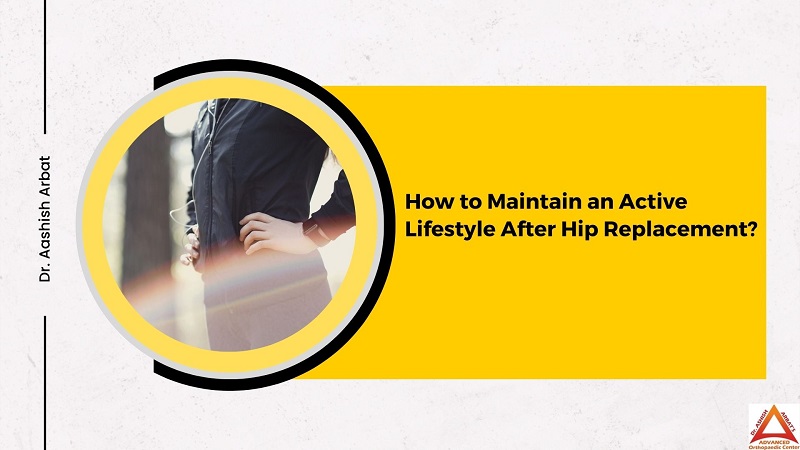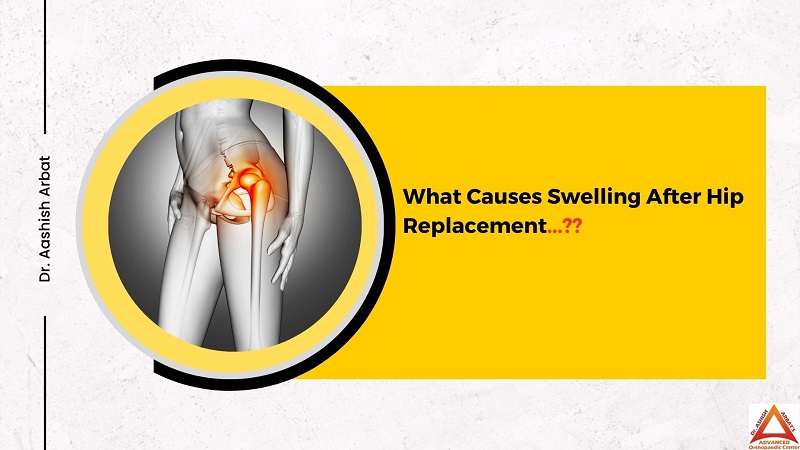How to Maintain an Active Lifestyle After Hip Replacement?
Sustaining an active lifestyle after hip replacement surgery is important for your overall well-being. Though high-impact activities like running or jumping are restricted, you can safely include low-impact exercises into your daily routine. Looking to know how to maintain an active lifestyle after hip replacement? In this blog, Dr. Aashish Arbat a reputed hip replacement surgeon in Pune explains how to maintain an active lifestyle after hip replacement. He has immense knowledge of technological advancements & innovations to help cure patients with less pain & in shorter time frame. How to Maintain an Active Lifestyle After Hip Replacement? Here are some tips to help you maintain an active lifestyle after hip replacement: Walking: Regular walking is highly recommended for joint health. Start with short walks and slowly increase the duration as you feel comfortable. Swimming: This is a low-impact exercise that gives a whole-body workout. It’s mild on the joints and helps hold care team muscle tone. Cycling: Cycling is another effective way to keep your hip flexible and toughen your leg muscles. Yoga: Moderate yoga poses can increase flexibility, balance, and overall well-being. Look for classes precisely designed for post-hip replacement patients. It is, however, always suggested to remember to consult your hip replacement surgeon before starting any exercise program. They can recommend activities based on your exact needs and recovery progress. Dr Aashish Arbat the most dependable joint replacement surgeon in Pune mentions that a few lifetime precautions are mandatory post-hip replacement surgery. Lifetime Precautions After Hip Replacement A list of permanent restrictions after hip replacement: Stay away from repetitive, high-impact activities such as jumping, running, or playing contact sports, as they may harm your implant Sidestep crossing your legs, or bending too far as they can cause displacement of your hip joint. Be cautious when traveling by air, as you may need to notify the security staff about your implant and take precautions to avoid blood clots You can do low-impact exercises like walking, cycling, swimming, or yoga, but stay away from extreme positions that can stress your hip How fast you improve after hip replacement surgery will depend on various factors, including your general health, age and whether you develop any difficulties after surgery. In most cases, your therapist will try to get you up and out of bed on the same day as your surgery or the day after. Total hip replacement recovery week-by-week explained by a hip replacement doctor in Pune. Total Hip Replacement Recovery Week by Week Week by week recovery after total hip replacement is mentioned below: 2 to 3 weeks: Pain diminishes, and you can start weaning off narcotic pain medications. 6 weeks: Most strength is regained, and discomfort is significantly reduced. 3 to 6 weeks: You can perform normal light activities. 6 weeks: You are expected to be able to drive again Pictures of Swollen Leg After Hip Replacement FAQs What Can You Never Do After Hip Replacement? Rush the healing process or skip exercising for a long period Struggle in getting up and moving around Bend your hip more than 90 degrees at the waist or in any activity Raise your knees past your hips or cross your legs Turn your feet in or out too much or twist or rotate at the hips Drive until permitted by your doctor Partake in contact, jumping or plyometric activities Touch your incision or use heavy narcotics, smoking, or alcohol How Long Does it Take to Walk Normally After Hip Surgery? The retrieval time for walking unassisted after hip surgery can vary. Usually, it takes three to six months for one to walk normally post hip operation. How Much Swelling is Normal After Hip Surgery? An Orthopedic doctor in Pune says, some swelling is normal, post hip surgery, expect moderate to severe swelling in the first few weeks. This may continue at a mild to moderate level for 3 to 6 months. When Should I Worry About Swelling After Hip Replacement? Experiencing symptoms like severe pain, redness, or inflammation around the incision site, fever or chills, trouble in breathing or chest pain, redness or increased warmth in your calf; contact your Orthopedic doctor right away. Conclusion Hip replacement surgery is a serious medical event. It habitually raises up a combination of optimism and fear. “How fast should I be able to walk normally again; is something that keeps bothering you. The ability to walk is essential for a high standard of living. Recovery times may vary across individuals, depending on the surgery, existing conditions and physical well-being. A proper knowledge of what you can expect can give you peace of mind.




